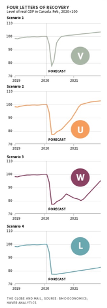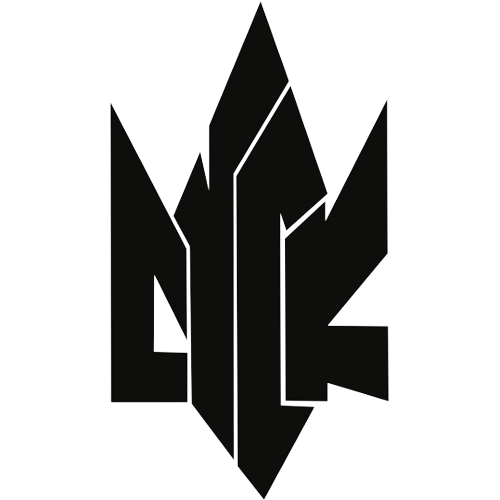By Raissa Dzulynsky
What is the definition of “uncertainty”? There is uncertainty in how the human population will overcome this new virus and there is uncertainty in the future of our economy. Uncertainty seemingly permeates all facets of life in recent months. And this uncertainty and ensuing chaos affect some groups more than others.
I am studying medical science and business in a dual degree program at the University of Western Ontario. I’m grateful to be safe and healthy during this time. And all this social distancing has given me a lot of time to reflect. This blog post highlights a personal reflection on the last couple of weeks, which spans from science to business, to broader thoughts about the headspace of new university graduates.
Many of my friends just graduated from university virtually. They planned to search for a job when finishing school and maybe travel a bit, but their reality is quite different. Other friends, including myself, have a summer internship and are hoping for a return offer at the end of the summer so that we can secure employment when we graduate in 2021. I end my blog post with questions for employers and anyone with experience on how students and recent graduates can navigate these tumultuous times.
My reflections on coronavirus as a human, health and economic crisis
As you will read below, my thoughts span two unique disciplines, as do university studies.
Science
We have not had such a large-scale lockdown since the Spanish Flu of 1918 where 500 million people, at that time, 1/3 of the world’s population, were infected by the virus.
Epidemiologists and public health experts are creating models that are their best estimate, but these keep changing. Why? Coronaviruses aren’t new to scientists (see below), but COVID-19 is. This virus spreads differently than SARS-CoV, that many Canadians will remember. (The major receptor for the SARS S glycoprotein (angiotensin converting enzyme 2) is generally found in the lower respiratory tract, meaning that peak viral shedding from the virus occurred late into the illness, once people were already hospitalized.) This, as well as other factors, are different from today’s coronavirus where viral shedding occurs much earlier, even if an individual is asymptomatic.

Business
On ~April 14, 2020, the International Monetary Fund estimated that the Canadian economy might shrink 6.2% in 2020. On ~April 21, 2020, TD estimated a 7.6% drop in Canada’s GDP in 2020. Economists have suggested various trends in economic recovery. At this point it’s unlikely that a V-shaped recovery will occur. But what will occur? U? W? L? The point here is that we don’t know. If Canada follows similar public health interventions to European and/or Asian countries and utilizes advanced tracking technologies, we have a higher chance of predicting and reducing the severity of additional outbreaks of COVID-19.
The question then becomes – how quickly will the economy rebound? How do you predict what will happen when there is no historical analogue to the current situation? This is a situation where economic conditions aren’t being driven by interest rates, consumer confidence, and employment, but instead by public health directives.

The economy won’t just ‘bounce back’. That much we know, which brings me to the main topic of this blog: What does it mean to graduate university amidst uncertainty?
Personal reflections in the past weeks about resilience, investing, and employment
Resilience
- Ukrainian-Canadian students these days did not live in displaced persons camps like our grandparents and we weren’t treated as ‘enemy aliens’ like our great-grandparents. Some of us are immigrants which adds a challenge, but in general, it can be argued that many of us have not experienced the same hardships as our ancestors. So, the question becomes, how do we build resilience and grit? We may not get a job right away, it may not be the ideal job, or we may be let go a few months in.
- Following that question, my thought process is: If you find yourself without a job, pick yourself up and keep moving – in other words, this is the time to show that you can be resilient. As one of my professors used to say, if something goes wrong, order yourself a bowl of pad thai, and try again. I like to tell myself to “just keep swimming”.
Investing
- Maybe I can invest money? North American markets are highly efficient so while it is true that some companies can currently be bought at a bargain (i.e. taking a value investing approach), this is not something anyone and everyone can do successfully. Further, there is a lot of retail money flowing in and out of the market. Look up Gilead Sciences (NASDAQ: GILD). The stock price has been extremely volatile; most recently, it dropped 9% on April 23rd when remdesivir, the drug the news picked up as a potential ‘coronavirus drug’, failed to improve patient conditions in early clinical trials. However, broad-spectrum antivirals such as remdesivir were highlighted in medical journals as potential cures weeks earlier than the media picked up the story and the stock exploded. This is all to highlight the growing force of retail investors in moving stock prices. Individual investors are not particularly rational – that’s where the whole field of behavioural economics stems from.
- Here’s another thought about investing. Big brands do well in the market because these are the companies retail investors know and trust. Those stocks may be overvalued, even in industries that are undervalued. Big brands also have stronger balance sheets, so they are more likely to survive … maybe their stock prices are closer to the intrinsic value than my previous suggestion? Without the competition of small clothing stores, for example, large brands will become even stronger. The same goes for smaller fintech companies vs. large banks and financial institutions. What industries will actually benefit by the current situation. That one may be obvious. And do I look into bonds? You need to be a much more sophisticated investor to understand the bond market.
- My thoughts surrounding investing generally conclude with:
- Do I have a high enough risk capacity for these fluctuations? – i.e. what are my liquidity needs?
- How much money can I convince my parents to give me? And do I trust myself when it comes to investing their money?
- And, maybe this will be my side-hustle, because my current savings aren’t going to get me as far financially as a job will, even with above-average returns.
Employment
- As I racked up on difficult courses and extracurriculars over the last couple of years, I was overloaded and left little time to reflect. Now that I’m forced to slow down and my thoughts wander, this is an opportunity to think about my goals. Maybe I’ll come up with a great business idea? It might be difficult to raise capital (or in this sense, get funding from friends and family), but who knows? My idea could be viable and highly successful in better times.
- I do fear being unemployed when I graduate. However, we knew a recession was inevitable in the coming years as dictated by business cycles and that discussion become more prominent when the yield curve inverted last August. That makes me think that some companies prepared by hiring less interns, so they would give those interns a similar chance of receiving a full-time offer? This may be a naïve thought or maybe it only applies to certain types of companies – e.g. financial institutions – but it’s a thought that crossed my mind nonetheless.
- Bringing it back to graduating and job-hunting in uncertainty, there is a concept called ‘scarring’. According to the New York Times, historic evidence shows that students who graduated in recessionary times often took lower-paying jobs at less prestigious companies. And the impact of this could last up to 15 years.[1] During the financial crisis many graduates couldn’t find jobs, offers were rescinded, and millions of layoffs and job losses occurred. Are graduates of 2020 and 2021 going to be in the same situation? The current situation appears has begun to look similar to that period (2007-2009). And in some regions, as the Canadian economy continues to be linked to the oil and gas sector, the impact will be much worse.
Broader thoughts about graduating in uncertain times
I listened to a panel discussion earlier this week consisting of individuals that had graduated in uncertain times: during the financial crisis, the early 1990s, etc. They provided their advice for the graduates of 2020 and 2021.
Ideas for those that have just graduated and are either looking for work or are currently expected to start at the end of the summer:
- Stay connected to your future employer – show them you are eager and excited to start work
- Reach out to your network – even better, if someone graduated in ’08 or ’09, they may be extra sympathetic because they understand what you’re going through.
- If your employer simply can’t afford to bring you on and you can afford it (maybe with the help of the newly announced fiscal stimulus?), ask if you can volunteer for the company. In this way, you can prove your value and be the first person the company hires when they can afford to.
After reaching out to a few friends I’ve put together a few additional questions we have for employers and other adults:
- Do the above ideas and suggestions apply to your workplace? What are your suggestions for new graduates and those who have lost their final internships?
- I want to become indispensable to my team. As an intern that is not physically coming to the office, how can I add value?
- As an intern, how do I make sure I’m working enough? I don’t want others to think I am slacking, but I don’t want to be annoying and constantly asking for work.
- How can I use this time to learn a new skill, and then how do I highlight this newly acquired or improved skill when searching for a job?
- How should new grads be marketing themselves against experienced hires that may have lost their jobs and are now competing for the same positions?
One of SUSK’s top priorities is to represent Ukrainian-Canadian students across the country and we are always looking for advice. Comment below or write to us with your suggestions and tips at alumni@susk.ca. We will make sure to share this information with our network.
If you’re an employer, please share your ideas – how do new grads in these uncertain times prevent scarring, get hired, and for those of us that are lucky, how do we add value in virtual internships?
Sincerely,
Grads of 2020 and 2021
[1]https://www.nytimes.com/2020/03/27/business/coronavirus-class-of-2020-jobs.html

